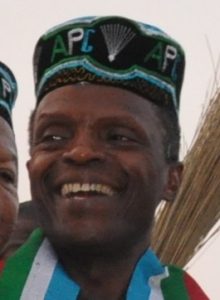“A robust international framework for quick restitution of stolen assets is long overdue”
Yemi Osinbajo, Vice President of Nigeria at the OECD, 30 March 2017.
Last week we were at the OECD for  the 2017 Global Anti-Corruption and Integrity Forum, an event billed as a follow-on to the 2016 London Anti-Corruption Conference and bringing together government, business and civil society to discuss the future of anti-corruption efforts.
the 2017 Global Anti-Corruption and Integrity Forum, an event billed as a follow-on to the 2016 London Anti-Corruption Conference and bringing together government, business and civil society to discuss the future of anti-corruption efforts.
What five things did we learn from the sessions that took place?
- The Nigerian Government is pushing for a new, global asset recovery framework and for increased participation of other countries in discussions on anti-corruption in the G8 and G20. What this would look like is not clear, but what is, is that there is a deep level of dissatisfaction with the current process for freezing, confiscating and returning the proceeds of grant corruption to the country of origin and willingness to talk about an alternative system that would speed up the process.
- The UK is still taking a leading role on anti-corruption efforts internationally. Despite the mass of other issues facing the UK government currently and the departure of the Cameron administration which prioritised anti-corruption, the UK is still keen to lead the way at the international level, sending a senior MP to the summit and financially supporting parts of the event.
- Progress is building on enabling and building principles around compensation and/or return of profits confiscated from companies that bribe overseas to secure contracts. Parallel to traditional asset recovery relating to government officials, but not necessarily yet developing together, in private sector stolen asset recovery there is a strong current favouring returns only when the money can be used accountably and transparently.
- The International Anti-Corruption Coordination Centre announced at London summit is still on the cards. What we know now is that it will include or be based on a new online knowledge sharing site at OECD, currently under development.
- The US government’s presence in anti-corruption discussions is perhaps in decline. Notable at the OECD conference was the lack of US officials speaking on panels. It’s not yet clear if that related to the event or whether it signals a general retreat from the leading approach it took on anti-corruption efforts in recent years.
Highlighted at the conference is that anti-corruption efforts are becoming more challenging as corruption is deprioritised by some governments and instrumentalised by others. Despite this, we have never had a global population more aware of corruption and more willing and able to stand up for their rights. We need to harness those demands to ensure that less grand corruption happens and that when it does, asset recovery is accountable, transparent and – as highlighted by the Nigerian presidency – also speedier than it is now.
